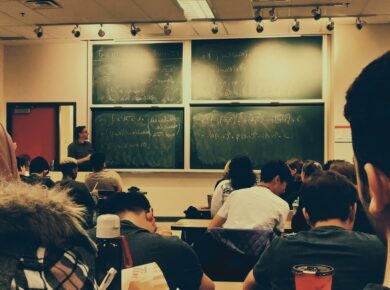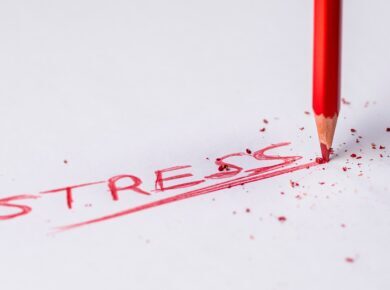Table of Contents
College is a beneficial and exciting time; it is filled with new experiences, friends, and opportunities for personal growth. However, it can also be a time of burnout, a serious issue that can significantly impact academic performance and overall well-being.
But don’t worry; there are steps you can take to manage and overcome burnout. In this blog, we’ll explore helpful strategies on how to deal with burnout in college and reclaim your energy, motivation, and enthusiasm for learning.
What Is College Burnout?
When college stress goes on for too long and becomes too intense, it can lead to burnout. Burnout is when you feel emotionally, mentally, and physically exhausted because of all the demands of being a college student. It can show up in different ways, like feeling overwhelmed, anxious, or unmotivated. You might notice difficulty focusing or not performing as well academically as you used to.
Physical symptoms like headaches, fatigue, and trouble sleeping can be signs of burnout. It’s important to recognize these signs and take steps to manage and overcome burnout so that it doesn’t impact your mental health, academic performance, or overall well-being.
What Are the Causes of Burnout in College?
Knowing the causes of burnout in college is essential because it can help you take proactive steps to prevent or manage burnout. When you see what’s contributing to your stress levels, you can take targeted actions to address those specific factors.
Financial stress: Focusing on your studies and other responsibilities can be difficult when you’re worried about paying for tuition, textbooks, and other expenses. It can lead to feelings of anxiety, overwhelm, and exhaustion, which can contribute to burnout over time.
Loneliness: When students feel disconnected from their peers and support networks, they may experience increased stress and anxiety, leading to burnout. Loneliness can make it harder for students to stay motivated and engaged in their studies, further exacerbating feelings of burnout.
Family issues: Family issues such as conflict, financial stress, or illness can create additional pressure and responsibilities for students, adding to the already high levels of stress that come with being a college student.
Stress balancing work and study: Balancing work and study as a college student can be challenging and requires careful planning and prioritization. When students cannot develop time management skills and self-care practices, it can lead to burnout.
Relationships: Relationships can intensify college burnout because maintaining healthy relationships requires time and energy, which can add to an already overwhelming workload.
School results: Students who have performed well in high school may feel more pressure to maintain their success in college, which can lead to stress and burnout.
What Does Burnout Look Like in Students?
Burnout in college can manifest in various ways, and it’s crucial to recognize the signs before they affect our academic and personal lives. Some common symptoms of burnout include feeling exhausted, anxious, or depressed. We may also experience a lack of motivation, leading to lower academic performance. Let’s take a more detailed look at what burnout looks like in students:
Exhaustion: Students may feel drained, exhausted, and lack energy, which can affect their ability to concentrate and focus on their studies.
Anxiety or depression: Burnout can cause feelings of anxiety or depression. Students may feel overwhelmed, stressed, and excessively worried about their academic performance.
Lower performance: Burnout can lead to decreased academic performance, as students may find it challenging to complete assignments or prepare for exams due to a lack of motivation or energy.
Irritability: Burnout can cause irritability, leading to conflicts with friends, family, and classmates. Students may also feel easily frustrated and angry.
Lack of motivation: Burnout can cause students to lose interest in their studies, extracurricular activities, and hobbies. They may lack motivation and enthusiasm, leading to a decline in academic performance.
Difficulty sleeping: Burnout can cause students to have difficulty falling or staying asleep, leading to fatigue and exhaustion.
Weight gain or drop: Burnout can cause students to experience changes in their appetite, leading to weight gain or loss.
Tips on How To Deal With Burnout
It’s important to understand that burnout is not an inevitable part of college life, and there are steps we can take to prevent it. Prioritizing self-care can help you in the long run. Taking breaks throughout the day, such as walking or doing a quick breathing exercise, can also help us recharge and refocus our energy. Remember, caring for our psychological and physical health is as important as our academic success, and preventing burnout can help us achieve both. Let’s learn some tips on how to deal with burnout.
Learn to manage your time
Time management is crucial for avoiding college burnout because it helps students balance their academic and personal workloads. In college, students often have multiple assignments, papers, and exams due simultaneously, which can be overwhelming and lead to burnout. Time management skills help students prioritize their tasks, break them down into manageable chunks, and allocate their time efficiently to avoid feeling overwhelmed.
Prioritize
Prioritizing helps students manage their time effectively and focus on the most critical tasks first. By prioritizing their workload, students can ensure they are working on the essential tasks first, which can help reduce stress and prevent burnout.
Additionally, prioritizing allows students to make time for self-care activities like exercise, relaxation, and socializing. By making time for these activities, students can recharge their batteries and prevent burnout from overworking themselves.
✅ Request information on BAU's programs TODAY!
Set realistic goals
Setting realistic goals is essential to avoid college burnout. When creating your goals, ensure they are achievable and aligned with your values and interests. Consider your workload, schedule, and personal needs when setting your goals. Be flexible and willing to adjust your goals as needed. Remember, college is a time for learning and growth, and balancing your academic and personal life to avoid burnout is essential.
Do not skip sleep and exercise
Sleep is crucial for cognitive function, memory consolidation, and overall well-being. Lack of sleep can lead to increased stress, anxiety, and depression, common causes of burnout. Following a consistent sleep and exercise pattern can help reduce college burnout.
Additionally, regular exercise has been shown to improve mood, reduce stress, and increase energy levels. It can also help enhance sleep quality, leading to a positive cycle of better sleep and reduced burnout. Therefore, incorporating a routine of adequate sleep and regular exercise can effectively reduce college burnout.
Learn to say “no”
Students often find themselves stretched thin and overwhelmed with the pressure of academic workload, extracurricular activities, social commitments, and part-time jobs. Students should feel empowered to set boundaries and prioritize their well-being. By learning to say “no” respectfully and assertively, students can reduce burnout and achieve a better balance in their college life.
Consider a long break
If college burnout is becoming too much, consider taking a gap year. A gap year allows one to take a break from academics, explore other interests, gain work experience, or travel. It can be a chance to recharge and return to college refreshed and ready to continue pursuing academic goals.
Have fun
While academics are important, taking breaks and engaging in activities that bring you joy and relaxation are also necessary, such as joining a club or organization on campus, making time for exercise or other hobbies, or simply spending time with friends. Additionally, it can be helpful to establish a routine that allows for both work and plays and to practice good time management skills to avoid last-minute stress and cramming.
Ask for help
Students must understand that burnout is a natural and common issue affecting their academic performance, mental health, and overall well-being. Students should ask for help when they start experiencing exhaustion, apathy, anxiety, and lack of motivation. Students can seek help by talking to their professors, academic advisors, campus counseling services, or other support resources available at their college. Asking for help is not a sign of weakness but rather a proactive step towards improving one’s mental health and achieving academic success.
The Bottom Line
Burnout is a common experience among college students, and it can significantly impact negatively their academic performance and overall well-being. However, there are several strategies that students can use to cope with burnout, including seeking support from friends and family, engaging in self-care activities, seeking professional help if needed, and making changes to their study habits and schedules. By taking proactive steps to address burnout, college students can better manage stress and improve their chances of success in their academic pursuits.














